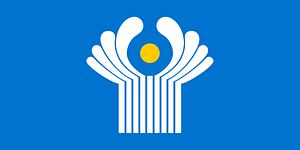Twenty-five years after the dissolution of the Soviet Union and simultaneous creation of the Commonwealth of Independent States, the group’s jubilee summit is taking place at a time of considerable stress across the region. Kyrgyzstan–which holds the CIS presidency at the moment–probably hoped for a better atmosphere.
The summit, prefaced by a gathering of foreign ministers, typically features the heads of state of the nine members–Armenia, Azerbaijan, Belarus, Kazakhstan, Kyrgyzstan, Moldova, Russam Tajikistan and Uzbekistan. Last year, eight presidents attended the summit in Kazakhstan–with Moldova sending its deputy minister of foreign affairs and european integration. This year, only seven presidents are planning to show up.
According to TASS, Bolotbek Mukashev, head of the Kyrgyz Foreign Ministry’s department of integration associations said in early August that the heads of all the CIS member states had confirmed their participation in the summit.
A month later, Uzbekistan President Islam Karimov–the CIS’ oldest leader and a persnickety regional player–is dead and his successor, Acting President Shavkat Mirziyoyev, won’t be attending. Sapar Isakov, deputy head of the Kyrgyz President’s Office, told 24.kg that Bishkek had been informed via a “tender letter” that Mirziyoyev would be skipping the summit and sending the country’s Foreign Minister in his place. Isakov stressed that the decision to skip the summit had everything to do with “certain things in Uzbekistan” such as planning for elections by December and “in any case, it doesn’t mean that the decision of the Uzbek side is connected with our bilateral relations.”
Relations between Kyrgyzstan and Uzbekistan are at a low point. Karimov’s illness and death coincided with renewed tensions over a specific mountain (and/or a nearby reservoir) on an undelimited section of their mutual border. While the situation improved marginally–with the four Kyrgyz detained by Uzbekistan released last week–the Kyrgyz border services says 20 Uzbek police remain on the mountain. It’s not quite clear yet how Tashkent’s new leadership will approach Kyrgyzstan. And with Mirziyoyev’s decision to skip the CIS summit, it will remain an open question.
Kazakh President Nursultan Nazarbayev confirmed his attendance at the Bishkek summit, though a bilateral agreement between Kazakhstan and Kyrgyzstan on railway transport tariffs–expected to be signed on the sidelines of the summit–is apparently no longer on the docket. The issue relates to the functional operating of the Eurasian Economic Union. An EEU gathering in mid-August in Sochi resulted in an almost-agreement on an EEU Customs Code. According to the then-Kazakh Prime Minister Karim Massimov, there was also an agreement (in Sochi) to development an agreement with Kyrgyzstan on using unified railway tariffs on Kyrgyz goods.
Other attendees at the Bishkek summit are Russian President Vladimir Putin, Azerbaijani President Ilham Aliyev, Tajik President Emomali Rahmon, Armenian President Serzh Sargsyan, and Belarusian President Alexander Lukashenko. The Prime Minister of Moldova will attend in place of the president and as usual the two CIS associate members, Turkmenistan and Ukraine, will send less-than-presidential representatives. The deputy chairman of the cabinet of ministers of Turkmenistan is expected and Ukraine’s ambassador to Kyrgyzstan will represent Kyiv’s interests.

































